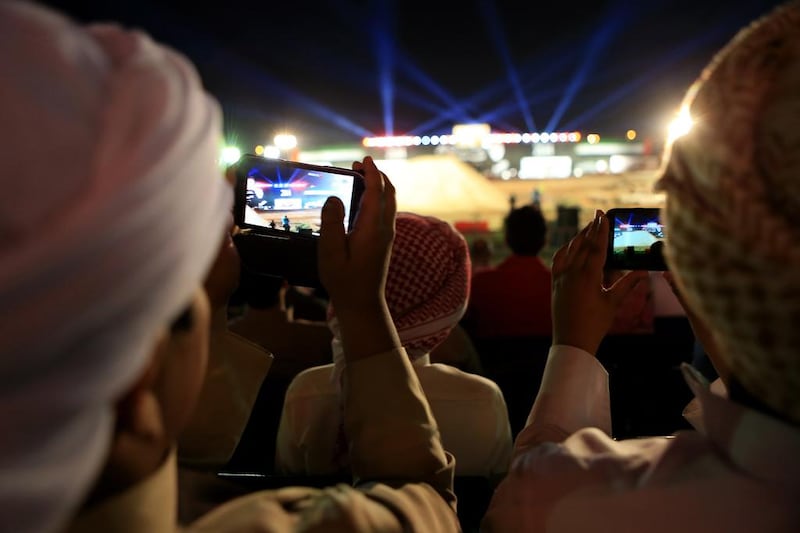DUBAI // The continuing rise of social media offers good opportunities for better policymaking, but privacy concerns and misuse of data still pose a challenge to governments and businesses, a recent study suggests.
Almost 40 per cent of people in the Arab region are social media users. For the UAE, the figure is far greater and experts say the growing number of users can help to shape public opinion and government policy.
Twitter, Facebook and other platforms allow for greater interaction between governments and its citizens.
Facebook also takes the opinions of its users into consideration when forming policies or developing its services.
Fadi Salem, a research fellow at Mohammed bin Rashid School of Government and the author of the 7th Arab Social Media Report, said there was growing use of social media in the 22 Arab countries that were covered.
“In this report, we try to focus on policymaking and how social media, in addition to other data sources , is enabling better policymaking,” Mr Salem said.
“Facebook, for example, has 156 million users as of January this year, up from 115 million users two years ago.”
The report said 39 per cent of people in the region were social media users, up from 28 per cent in 2015.
It also highlighted an increase in the number of Twitter and LinkedIn users. As of last month, there were 11 million active Twitter users and 16.6 million on LinkedIn users.
For Instagram, which was included for the first time in the report, there were 7.1 million active users in the Arab world.
Despite its popularity, “the value of social media in public policy in the region has limitations ranging from concerns about privacy, to loss of control, misrepresentation and misuse of data”, said Mr Salem.
The study found 15 per cent of people said they provided false information on social media, while 44 per cent said that they either closed or abandoned at least one social media account last year.
Forty-six per cent said they had more than one account on at least one social media platform, leading to fears that accounts were being used maliciously.
In the survey, which was conducted online with 19,000 internet users, 58 per cent said that they expressed their views on government policies or services on social media.
Upon further analysis, only 29 per cent said they openly expressed their opinions directly on social media, while 24 per cent of respondents said that they censored their comments.
“Governments around the world are proactively experimenting with social media data and interacting with social media users in a variety of ways,” Mr Salem said in the report.
“The spectrum of uses varied from benign and positive uses, to manipulative and aggressive ones.
“For example, some governments may rely on social media data for trend and sentiment analysis, feeding into policymaking with the objective of aligning policy development with public needs, concerns and preferences.
“Others capture and store massive amounts of activity and personal data on social media users for profiling and behaviour analysis.”
When respondents were asked whether they would support the use of their personal social media data by governments if it led to better policies, 34.7 per cent said they would but they still had concerns. Another 34.2 per cent said they strongly supported it without concerns.
Eighteen per cent said they were neutral, 7.5 per cent rejected it but saw some value, and 5.6 per cent strongly rejected it.
Another challenge to social media’s use as a policy-shaper is the gender gap.
“There is currently one woman for every two men in the region, which remains a persistent challenge,” said Mr Salem.
The report warned that this lack of adequate female participation may have a negative impact on ensuring inclusive development and policy design.
Mr Salem said that GCC countries continued to dominate the top ranks on most social media platforms in terms of penetration.
Qatar ranked first with 85 per cent, followed by the UAE with 81.1 per cent.
The UAE was the highest-ranking country for penetration with LinkedIn and Instagram, at 32.5 and 12 per cent. For Twitter, the UAE ranked fourth with 8.7 per cent penetration.
The full report, produced by the Innovation and Future Government Group, which is part of the MBR School of Government, can be found on mbrsg.ac.ae and arabsocialmediareport.com.
dmoukhallati@thenational.ae






